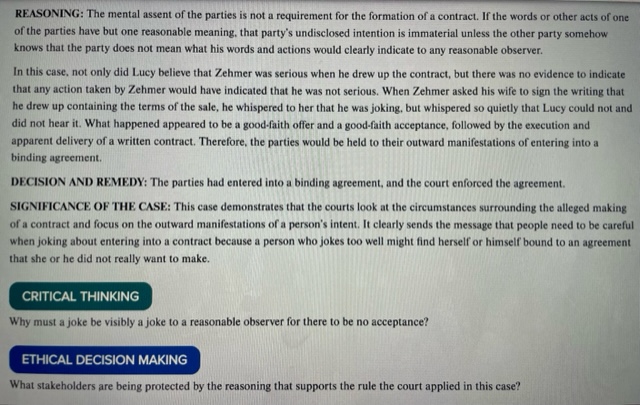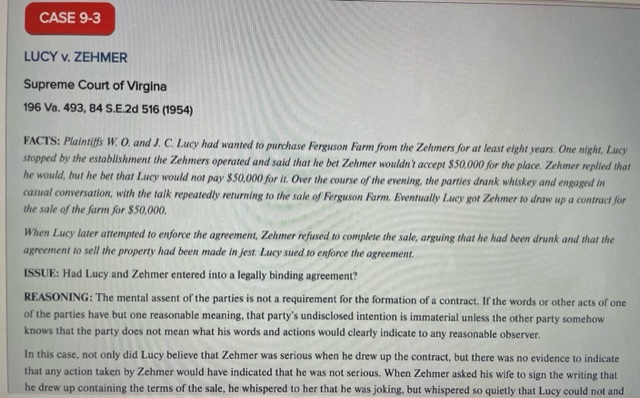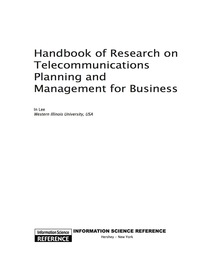

RE.ASONING: The mental assent of the parties is not a requirement for the formation of a contract. If the words or other acts of one of the parties have but one reasonable meaning, that party's undisclosed intention is immaterial unless the other party somehow knows that the party does not mean what his words and actions would clearly indicate to any reasonable observer. In this case, not only did Lucy believe that Zehmer was serious when he drew up the contract, but there was no evidence to indicate that any action taken by Zehmer would have indicated that he was not serious. When Zehmer asked his wife to sign the writing that he drew up containing the terms of the sale, he whispered to her that he was joking, but whispered so quietly that Lucy could not and did not hear it. What happened appeared to be a good-faith offer and a good-faith acceptance, followed by the execution and apparent delivery of a written contract. Therefore, the parties would be held to their outward manifestations of entering into a binding agreement. DECISION AND REMEDY: The parties had entered into a binding agreement, and the court enforced the agreement. SIGNIFICANCE OF THE CASE: This case demonstrates that the courts look at the circumstances surrounding the alleged making of a contract and focus on the outward manifestations of a person's intent. It clearly sends the message that people need to be careful when joking about entering into a contract because a person who jokes too well might find herself or himself bound to an agreement that she or he did not really want to make. Why must a joke be visibly a joke to a reasonable observer for there to be no acceptance? What stakeholders are being protected by the reasoning that supports the rule the court applied in this case? FACTS: Plaintiff W. O. and J. C. Lucy had wanted to purdase Ferguson Farm from the Zehmers for at least eight years. One night, Lucy stopped by the establishment the Zehmers operated and said that he bet Zehmer wouldn' accept $50,000 for the place. Zehmer replied that he would, but he bet that Lucy would not pay $50,000 for it. Over the course of the evening, the parties drank whiskey and engaged in casual conversation, with the talk repeatedly returning to the sale of Ferguson Farm. Eventually Lucy got Zehmer to draw up a contract for the sale of the farm for $50,000. When Lucy later attempted to enforce the agreement, Zehmer refused to complete the sale, arguing that he had been drunk and that the agreement to sell the property had been made in jest. Lucy sued to enforce the agreement. ISSUE: Had Lucy and Zehmer entered into a legally binding agreement? RE.ASONING: The mental assent of the parties is not a requirement for the formation of a contract. If the words or other acts of one of the parties have but one reasonable meaning, that party's undisclosed intention is immaterial unless the other party somehow knows that the party does not mean what his words and actions would clearly indicate to any reasonable observer. In this case, not only did Lucy believe that Zehmer was serious when he drew up the contract, but there was no evidence to indicate that any action taken by Zehmer would have indicated that he was not serious. When Zehmer asked his wife to sign the writing that he drew up containing the terms of the sale, he whispered to her that he was joking, but whispered so quietly that Lucy could not and








